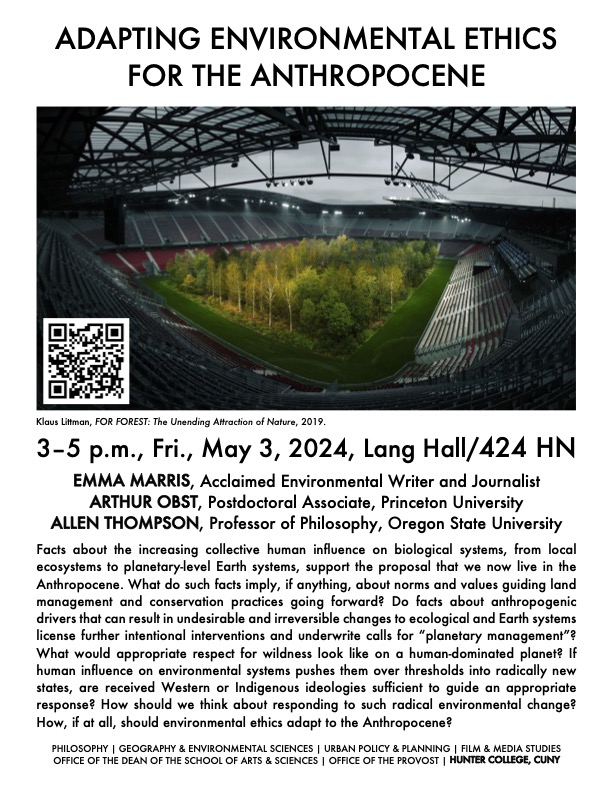Brooklyn Public Philosophers is a forum for philosophers in the greater Brooklyn area to discuss their work with a general audience, hosted by the Brooklyn Public Library. Its goal is to raise awareness of the best work on philosophical questions of interest to Brooklynites, and to provide a civil space where Brooklynites can reason together about the philosophical questions that matter to them.
If you’re interested in finding out more, or if you’d like to give a talk, please e-mail Ian Olasov at his first and last name at gmail.com.
A conference hosted by the Motherhood and Technology Working Group at the Center for the Study of Social Difference on the theme of “Conception and Its Discontents.”
Medical technologies have radically transformed the biological and social experience of motherhood. Advances in genomic and reproductive care, the circulation of novel kinship structures, the entrenchment of existing global networks of power and privilege, and the politics of contested bodily sites mark this emerging constellation.
Technological advancements have in particular impacted not just the understanding of conception, but the very process by which a human embryo is created, implanted, and matured. Egg freezing, embryo storage, IVF, and surrogacy afford women new freedoms in choosing when and how to become mothers, while also raising troubling questions about the pressures of capitalism and the extension of worklife, as well as the global inequalities present in the experience of motherhood. In addition, technologies have arisen allowing for unprecedented control over not just who becomes a mother, but what kind of embryo is allowed to be implanted and to grow. Technologies such as CRISPR and NIPT have re-introduced the question of eugenics, radically shifting the very epistemology of motherhood and what it means to be “expecting.” And contemporary abortion debates draw on technology in order to make arguments both for and against access, with imaging technologies being instrumentalized in the building of a sympathetic case for the unborn, and the very notion of a “heartbeat bill” reliant on the misreading of technologies for measuring fetal activity.
While these problems are urgent today, questions of conception and technology are by no means recent developments. The 18th century saw a flourishing of philosophical and scientific theories regarding the start of human life and its formation within the womb. Such theories relied on modern technologies, such as autopsy, to atomize and visualize the body. In the 19th and 20th centuries, eugenic medical science produced theories of reproductive difference between differing racial and social groups, leading to forced sterilization laws in both the US and in Germany. This long history of racializing the rhetoric of fertility and motherhood continues to influence political debates on immigration and demographic changes in the present.
Full conference details and schedule to come.
Please email disability@columbia.edu to request disability accommodations. Advance notice is necessary to arrange for some accessibility needs
2023 marks the 50th anniversary of the birth of hip-hop, and the beginning of a sonic, cultural and socio-political revolution that changed the U.S. and the world. To commemorate the anniversary, Brooklyn Public Library will present NIGHT IN THE LIBRARY: THE PHILOSOPHY OF HIP-HOP on Saturday, June 17th, from 7 pm – 2 am at Central Library.
Join us for this FREE event that will take over the entire Central Library building to celebrate hip-hop culture past, present and future, with keynote addresses, live DJs, film screenings, discussions, debates and contemplative engagements. BPL invites you to celebrate hip-hop and spend a NIGHT IN THE LIBRARY.
Co-curated by LeBrandon Smith and Kelly Harrison. The Dilemma Series is curated by April R. Silver, founder of AKILA WORKSONGS.
Nietzsche (1844-1900) is one of the few philosophers who have an intimate connection to music. This connection has much to do with his early music education. His contemporaries testify that he was a good pianist. His musical ambition, or his musical daimon, urged him to compose music, although he had no training in this area. Most of his compositions are from his late teens; his earliest inspirations are Beethoven, Mozart, Haydn, Schubert, Schumann and Wagner. His compositions were gathered together and published by Curt Paul Janz in Friedrich Nietzsche, Der musikalische Nachlass. Nietzsche’s music is available in several productions. However, Nietzsche did not follow a musical path and decided to become a philologist and dedicated his life to writing and philosophy.
Nietzsche’s background in music, on the other hand, influenced his way of thinking and writing. All of these interesting areas between music, literature, and philosophy and Nietzsche’s relationship to music understood on a broad spectrum have been explored by many Nietzsche scholars including Georges Liébert, Graham Parkes, Francois Noudelmann, Stefan Lorenz Sorgner and others and in the anthology, An Anthology on Nietzsche and Music: Philosophical Thoughts and Musical Experiments, edited by the presenters of today’s event. This event is dedicated to the exploration of this relationship between Nietzsche and music.
Facts about the increasing collective human influence on biological systems, from local ecosystems to planetary-level Earth systems, support the proposal that we now live in the Anthropocene. What do such facts imply, if anything, about norms and values guiding land management and conservation practices going forward? Do facts about anthropogenic drivers that can result in undesirable and irreversible changes to ecological and Earth systems license further intentional interventions and underwrite calls for “planetary management”? What would appropriate respect for wildness look like on a human-dominated planet? If human influence on environmental systems pushes them over thresholds into radically new states, are received Western or Indigenous ideologies sufficient to guide an appropriate response? How should we think about responding to such radical environmental change? How, if at all, should environmental ethics adapt to the Anthropocene?

The 6th ELSI Congress welcomes all with an interest in the ethical, legal, and social implications (ELSI) of genetics and genomics. Researchers, scholars, practitioners, trainees, policymakers, journalists, and the general public are invited to share and explore the latest ELSI research at ELSIcon2024.